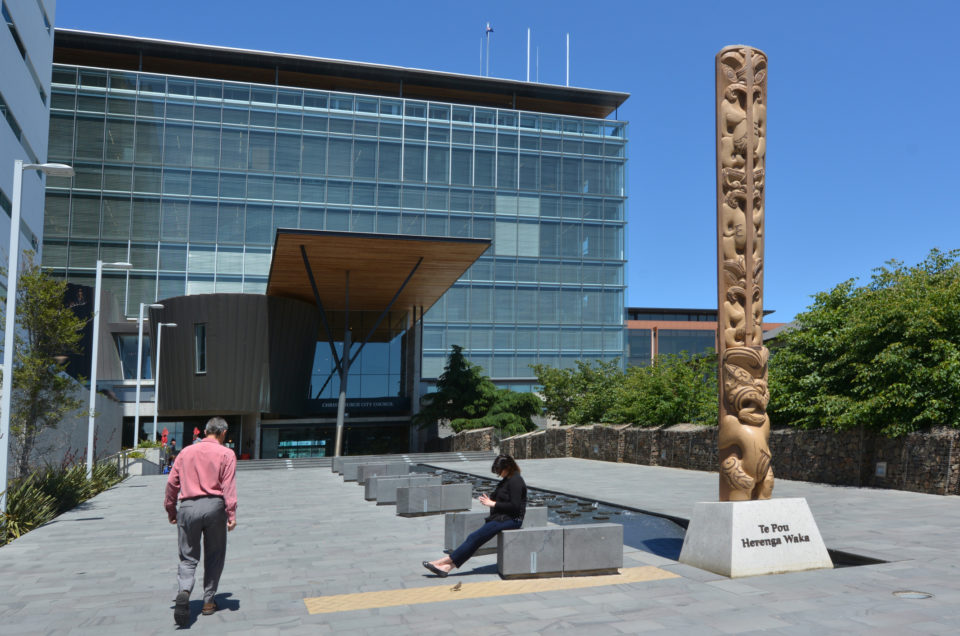The Government has initiated the first independent review of the local government sector in three decades that will focus on how “local democracy” and local governance need to evolve over the next three decades.
LG Magazine.
The review is also tasked with honouring the Treaty of Waitangi – the original and unratified British treaty of 1840 that fell into disuse between the 19th century and the 1980s when its ‘principles’ were incorporated into some legislation with the courts left to interpret those principles.
The review panel is to explore local government’s future in terms of roles, functions, partnerships, representation, governance, funding and financing. It will be chaired by Jim Palmer, recently retired chief executive of the Waimakariri District Council.
Other panel members are former Deputy State Services Commissioner John Ombler, strategic planning consultant Antoine Coffin, Gael Surgenor director Community and Social Innovation at The Southern Initiative, and former Auckland deputy mayor and councillor Penny Hulse. The panel is expected to report back in April 2023.
LGNZ president Stuart Crosby says the review panel must deliver a “bold response” that is in tune with the needs of today’s diverse communities.
“The operational realities for local government are huge urban growth and tourism pressures, greater focus on environmental protections and climate change pressures, all matched to outdated funding tools,” he says.
The Taxpayers’ Union criticises the choice of local government insiders and “professional bureaucrats” to head the review and its political perspective.
“By choosing exclusively local government luvvies, and not a single ratepayer or private sector representative, [Minister of Local Government] Nanaia Mahuta has ensured the foxes are guarding the henhouse,” says Union spokerperson, Louis Houlbrooke.
He also says that tasking the panel with ‘re-imaging the role and function of local government’, is “code for growing the beast”.
“It’s exactly the opposite of what needs to happen, which is a return to core services and abolishing the power of general competence.
“Councils should be tasked with providing quality local infrastructure and community services. Over the last 20 years, the sector has suffered from mission creep, resulting in higher rates bills, but less money for desperately needed infrastructure.
“The terms of reference and the panel make up are disturbing. Instead of a focus on better infrastructure, more transparency, or accountability, it appears the minister wants to move to a co-governance model with less democracy.
“The terms of reference are also founded on a false premise. They appear to assert that local government is a party to the treaty partnership. If that reflects Crown Law’s position that is an extremely significant constitutional change.
“Through the 1990s, the position was that local government is not a party to the treaty, and obligations to consult with Maori flow solely from legislation. Has that position changed, or is this inclusion being used as a tool by officials to water down democratic accountability?”
ACT’s Local Government spokesperson Simon Court says the review completely misses the mark of what is important to ratepayers.
“Our communities want their councils to get back to the basics. Water, rubbish, housing and roads is what councils should be focused on.
“This review shows a government out of touch. Our cities remain congested. Auckland beaches are frequently closed to swimming because of sewage leaks, the pipes in Wellington are broken, we have a drastic shortage of services and consented sections for the next generation to build their homes on. Where is the emphasis on these real world, practical concerns?
“It’s a make work scheme for pontificating bureaucrats, what we really want is councils who can direct sewage to sewerage treatment plants instead of the beach. There is not a single mention in the terms of reference today of ‘core functions’ or ‘ratepayers’.
“There are however lots of references to climate change, Maori/Treaty and well-being. The terms of reference state, ‘It should recognise Aotearoa’s increasing diversity, and give consideration to the relationship between strengthening social inclusion and improving the well-being of our communities.’
“That shows just how fuzzy this review is. The reality is that if councils take on more work and more functions rates will go up. Councils should be focused on fixing the pipes and roads and the Minister should be ensuring that’s the focus. The role of local government should be to provide services that neither central government nor private enterprise can provide. This report will allow Local Government to keep failing hard at essential services, while pursuing a range of ‘tiresomely woke’ agendas.”
Hamish Glenn, the policy director at Infrastructure NZ says the review is an, “opportunity to address a wave of serious issues across housing, transport and water by strengthening the ability of councils to execute, address long standing infrastructure funding and financing challenges”.
“We are very pleased to see the review panel has been given a broad mandate. The panel will consider the future of local government, including roles, functions and partnerships; representation and governance; and funding and financing. Councils provide critical infrastructure services across New Zealand, including the planning, funding, delivery and regulation of billions of dollars of assets.
“The current local government system was largely set in place in 1989 and is simply not geared for the kinds of challenges we see today.”
He also says it is very important that central government itself keeps an; “open mind to reform as the review may identify opportunities to transfer responsibilities and resourcing to local government to better incentivise decisions.”



